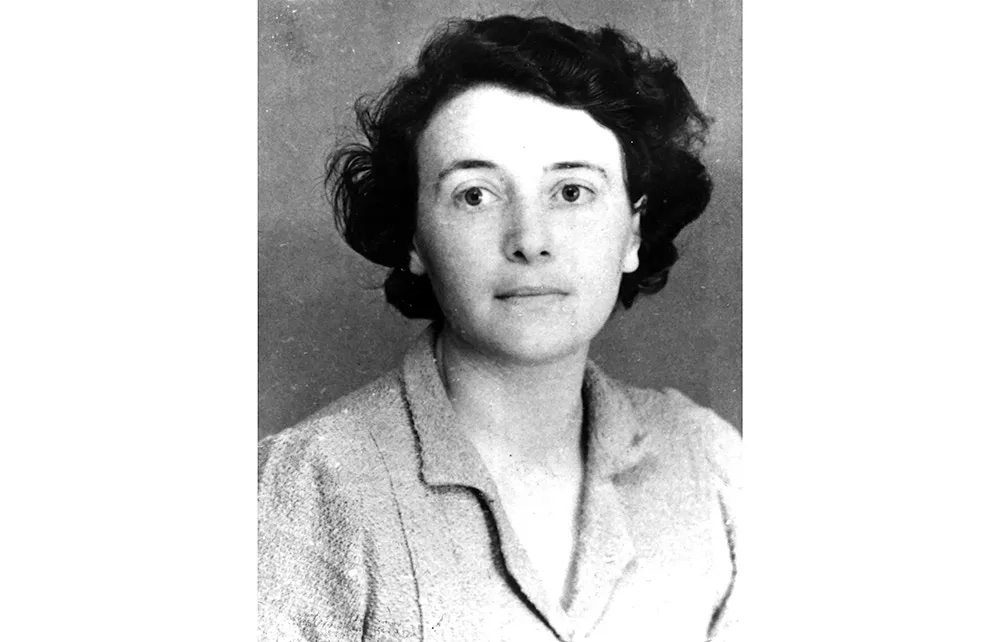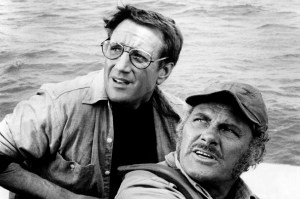Anna Funder, the author of Stasiland, is a top-tier writer who can roll fiction, reportage, criticism and memoir into glinting prose, her sentences like handheld treasures you keep turning over, admiring their graceful contours and crafted precision. Lately she’s published little. In fact Wifedom is a book wrenched from the swirl of domestic duties that drown out women’s voices — the lifeline, in this case, being a chance find at a moment of “peak overload” when she stumbles on a rare edition of George Orwell’s collected non-fiction.
Diving into his essay “Why I Write,” she looks for self-recognition and pauses over a sentence. Orwell contrasts people who “live chiefly for others, or are simply smothered under drudgery” with “the minority of gifted, willful people [he means writers] who are determined to live their own lives to the end.” He may as well have been describing men and women. But what if someone is both? The struggle of the female artist to rise above drudgery in order to create work is real to Funder, and exhausting. Yet it was a privilege Orwell enjoyed at the expense of his first wife’s unending labors.
Funder wants to better see Eileen O’Shaughnessy. But Eileen is one of the smothered, “buried first by domesticity, then by history.” It irks Funder that all Orwell’s biographers (seven; male) make her disappear beneath things that Orwell “came across” or “were procured” for him; how they take his word over hers when first-hand testimony attests differently. Funder wants to rescue this droll, warm-hearted woman from oblivion and in the process wrench herself back into hard-won artistry.
Teasing Eileen into visibility, Funder teaches herself to read between the lines and behind the passive voice the biographers deploy to hide her subject’s agency while exonerating their hero from any kind of culpability, chiefly his blinkeredness to the feelings of others (Orwell’s friend Richard Rees said “he never really looked at another human being”) and his sense of entitlement. This was especially apparent in his attitude to women, on whom he was inclined, almost indiscriminately, to “pounce,” forcing sex on them, then angrily reproaching them for not wishing to be raped.
If Eileen had literary ambitions, she relinquished them to those of her husband’s. Willingly, she catered to his needs, including having perfunctory sex she did not enjoy. She earned the lion’s share of their income, kept house, nursed him through fits of tuberculosis, typed up his notes, edited his typescripts and “encouraged” his work. There’s one of those trigger words again, cropping up in the biographies, casting Eileen as helpmeet while masking her more creative role in Orwell’s output — an output that, as Funder quips, required the labors of two, not one. Though hesitant to overstate Eileen’s influence, Funder cites several contemporaries who saw her fingerprints all over Animal Farm, a book that displays a psychological acuity and humanity that Orwell lacked.
His neglect of Eileen was astounding. He denied her visits to family and friends, insisting she remain at their damp, squalid cottage in Wallington (where they survived on little more than eggs). He let her clean out the cesspit and deal with mice while he typed upstairs. There were constant infidelities which, he told friends, potential conquests and perhaps himself, Eileen permitted; and his near criminal neglect of her poor health: the anemia caused by her near-constant bleeding from endometriosis and her regular collapsing, the result of the cancer that killed her at just thirty-nine.
A gripping run of short chapters near the book’s end is enlivened by conjectural scenes (reminiscent of Saidiya Hartman’s experiments in revivifying vanished women) in which Funder directs her subjects like actors in a film. She shows Orwell running off to newly liberated France, leaving his sick wife overworking, while in frequent letters Eileen makes quiet but desperate appeals for him to write or visit, all of which he ignores. Their friends are incensed by his cruelty. Nobody calls him to account.
Brought into the light, Eileen assumes impressive form. A sought-after editor, who had studied English at Oxford and psychology at UCL, she was loved by her friends — and worshipped by Georges Kopp, Orwell’s comrade in arms during the Spanish Civil War. We see Eileen most clearly in Spain, before she worked for the Ministry of Information (her experiences there were fodder for Nineteen Eighty-Four) or produced wartime broadcasts for the Ministry of Food. Funder rereads Homage to Catalonia, decoding its many constipated references to “my wife” for evidence of Eileen’s political activity. In vivid narrative scenes we see how Eileen kept Orwell out of danger when she knew they were being watched and risked her life for her anti-fascist co-workers, hiding their passports as her room was ransacked by police.
This is an angry book. Patriarchy, says Funder, is a “planetary Ponzi scheme” — a story “so powerful that it has replaced reality with itself.” In order to maintain itself, it must play a number on women, effecting a “vanishing trick” to efface their hurts in order for men to look innocent. This is the “patri-magic” that redeems Orwell from ugliness, protecting the moral “decency” he wished to own.
Since patriarchy writes a script for us all, Funder’s only recourse is to write a “counter-fiction.” Drawing energy from #MeToo, she details an assault on Eileen (styled by the biographers as a harmless grope), the force of her redress underscored by her relating several such episodes from her own life, including having her hand grabbed by a colleague of her father’s and placed on his crotch, which, to Funder’s adolescent mind, “felt like mushrooms.” Funny, not.
But there’s sadness here too. A mourning for what Eileen might have been and achieved, in spite of her famous husband. “Any writer could fall into the gap between what a reader imagines of them and who they think they are,” writes Funder. “And a woman might live there.”
This article was originally published in The Spectator’s UK magazine. Subscribe to the World edition here.

























